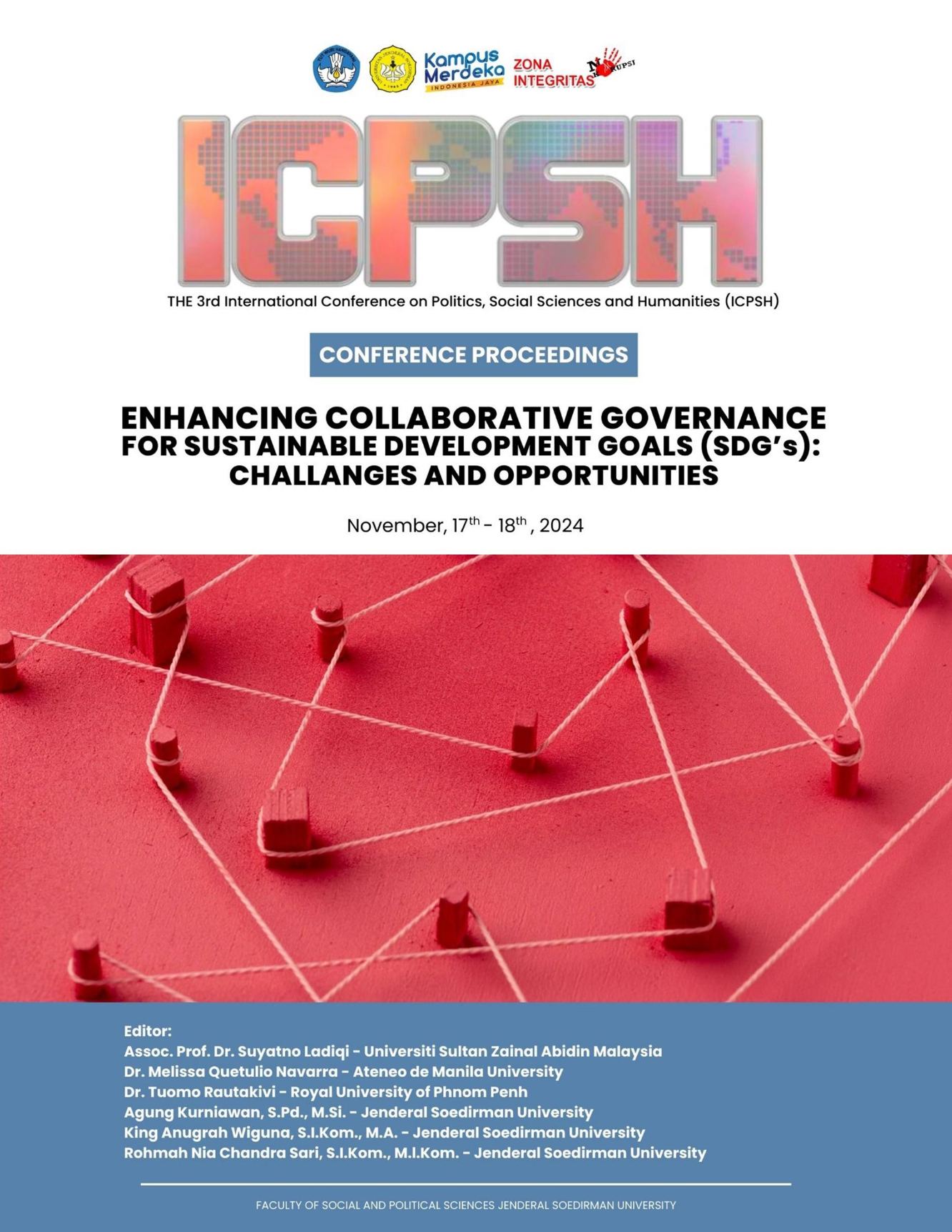Women’s Participation in Parliament Comparison Between Indonesia and Singapore in themConcept Of SDG 5 (Gender Equality AndWomen’s Empowerment)
Abstract
The pervasive gender-based discrimination is a fundamental cause of the insufficient
representation of women in politics, particularly within parliaments. This discrimination
undermines women's confidence and erodes public trust in their capabilities. Nevertheless,
policies addressing women's rights require the active involvement of women. Recognizing this
issue, the government is endeavouring to enhance women's participation in parliaments through
various initiatives. Additionally, the United Nations, through its global agenda—the Sustainable
Development Goals—has included gender equality as a key objective to address this issue. This
study will compare the governmental measures taken by two Southeast Asian countries,
Indonesia and Singapore, to improve the quality of women's participation in their respective
parliaments. The analysis will employ feminism theory, political participation theory, and
women's political participation theory. With a qualitative-comparative method to gain a
comprehensive understanding of the current status of women in parliament, interviews will be
conducted with parliament members, representatives from The Ministry of National
Development Planning/Bappenas, and feminist activists. Results from comparing both countries
are acquired as it will be seen that governmental actions solely, do not guarantee the quality of
women’s participation in parliaments. Further actions are required in order to obtain significant
progress.



